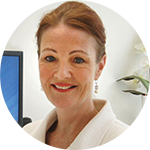Becoming board ready
3 ways to prepare for joining an executive committee
As a business leader, you may reach a point in your career when you look for new opportunities to expand your horizons. In some cases, this opportunity is joining a corporate board.
When first considering if a board position is the right move, you can look at how your career ambitions align with your personal motivations. You may want to apply your executive skills in a new area, give back to your community or experience different leadership styles in a team environment.
No matter what influences you to take that step, the transition from executive to board member is not always linear or simple. Even with years of experience under your belt, you may still be questioning whether you’re ready to join an executive committee.
Three UQ alumni share how their formal education, industry knowledge and corporate experience prepared them for board positions and offer advice on how to achieve success in a new arena:
 1. Bridge to the board: pathways
1. Bridge to the board: pathways
While reaching the board can look different for everyone, the journey tends to start off by reflecting on your professional experience and industry connections.
Before transitioning to a board career, Jacqueline Kelly had 15 years of experience as a CEO in not-for-profit health and community service organisations. She achieved her first board position through building relationships with colleagues and leveraging her expertise in corporate management.
“All of my board positions have come from advocacy and referral,” Jacqueline says.
While Jacqueline’s previous experience gave her the confidence to pursue a board position, Dr Claudia Giurgiuman believed as an executive she required further insight to join a board.
“I decided I was going to do a board readiness course to strengthen my understanding,” she says. “I was used to reporting to board committees, so I could understand what boards required from that end but hadn’t had direct experience from the other side.”
When a board position came up and she still felt unsure, the encouragement Claudia received from colleagues who knew her capabilities helped push her forward and led her to board positions in not-for-profit health organisations.
In a less conventional route, Michael Kasprowicz spent almost two decades playing professional cricket before accelerating his executive career into a range of business ventures. He was approached directly and offered a position on the Board of Cricket Australia while he was president of the Players Association.
He saw this as his opportunity to add new value to the sport by representing “all stakeholders in the game of cricket as a parent, coach, and player.”
 2. Give and take: preparing for a board role
2. Give and take: preparing for a board role
Transitioning to a board position can be a flexible process that requires you to exchange your skills for invaluable experience and connections. The essential skills you bring may include financial literacy, lateral thinking, adaptability and curiosity.
“When you’re coming onto a board, you need a different mindset,” Jacqueline says.
Jacqueline and Michael are both advocates for thinking outside the box and looking for answers in places where others don’t.
“It’s about asking questions that aren’t presented,” Michael explains.
Claudia considers the ability to interpret financial statements a valuable skill to have on any board.
“Financials will always tell you what’s going on, and where you need to look to solve a problem,” she says. “Usually, by the time it appears in the finances, it’s either a fast-approaching risk consequence or actually at the risk consequence stage.”
As board roles deal directly with high-level teams, Jacqueline recommends embracing the ways your executive experience suit the skills of existing board members.
“In executive and CEO roles, you’re the leader and it’s more individually focused,” she explains. “On the board, it’s a collective. You are part of a team, and you have to work together in a complementary way.”
 3. The best fit: choosing a board
3. The best fit: choosing a board
Selecting the right board is essential for working efficiently and meeting performance targets. A key aspect of deciding on a suitable board is ensuring you do your due diligence by researching the organisation to assess its value and any associated risks.
Jacqueline notes, “I always go to the website because I’m interested in what the organisation espouses and whether it is actually acting on that.”
She also suggests investigating the organisation’s reputation and status.
“I always look at the financials, see who’s on the board, and how I can complement them,” Jacqueline says. “I ask to see their latest staff survey results and customer research.”
When deciding on a board, it’s beneficial to situate your skills. Michael believes an important part of the selection process comes from how you communicate your value and continue developing new capabilities.
“It’s the value you put in a leadership capacity and how you articulate that,” he says. “Regardless of what background and industry you come from, the skills you develop are transferrable across every organisation.”
Claudia believes prospective board members need to be confident in what they can bring to the board.
“It’s essential to be really clear about what your value proposition is and how that might be applied in different situations,” she says.
 Taking the next step
Taking the next step
A UQ MBA can prepare you for joining a corporate board by helping you develop your confidence as a leader, establish new industry connections and strengthen your ability to adapt.
“It teaches you to look at things from different perspectives,” Jacqueline says.
“On the board, you’re the last line of defence and it requires a different mindset. You can’t have 15 people telling you what to do. You have to learn a new way of thinking.”
The UQ MBA helps shape your ability to think quickly and independently while considering the viewpoints of others.
Meet our contributing experts
Dr Claudia Giurgiuman

- Chair of Research Advisory Committee at Wishlist
- Former Board Member of Wesley Medical Research
- Former Chair of the Board of Women in Technology
- UQ MBA Candidate
Jacqueline Kelly

- Independent Trustee Director at Prime Super
- Former Non Executive Director of UnitingCare Queensland
- Former Chief Executive Officer of Lutheran Services
- UQ MBA Graduate
Michael Kasprowicz

- Director of Kaspa Australia
- Managing Director of Venture India
- Director and Founding Board Member of Bulls Masters
- Former Board Director of Cricket Australia
- UQ MBA Graduate
